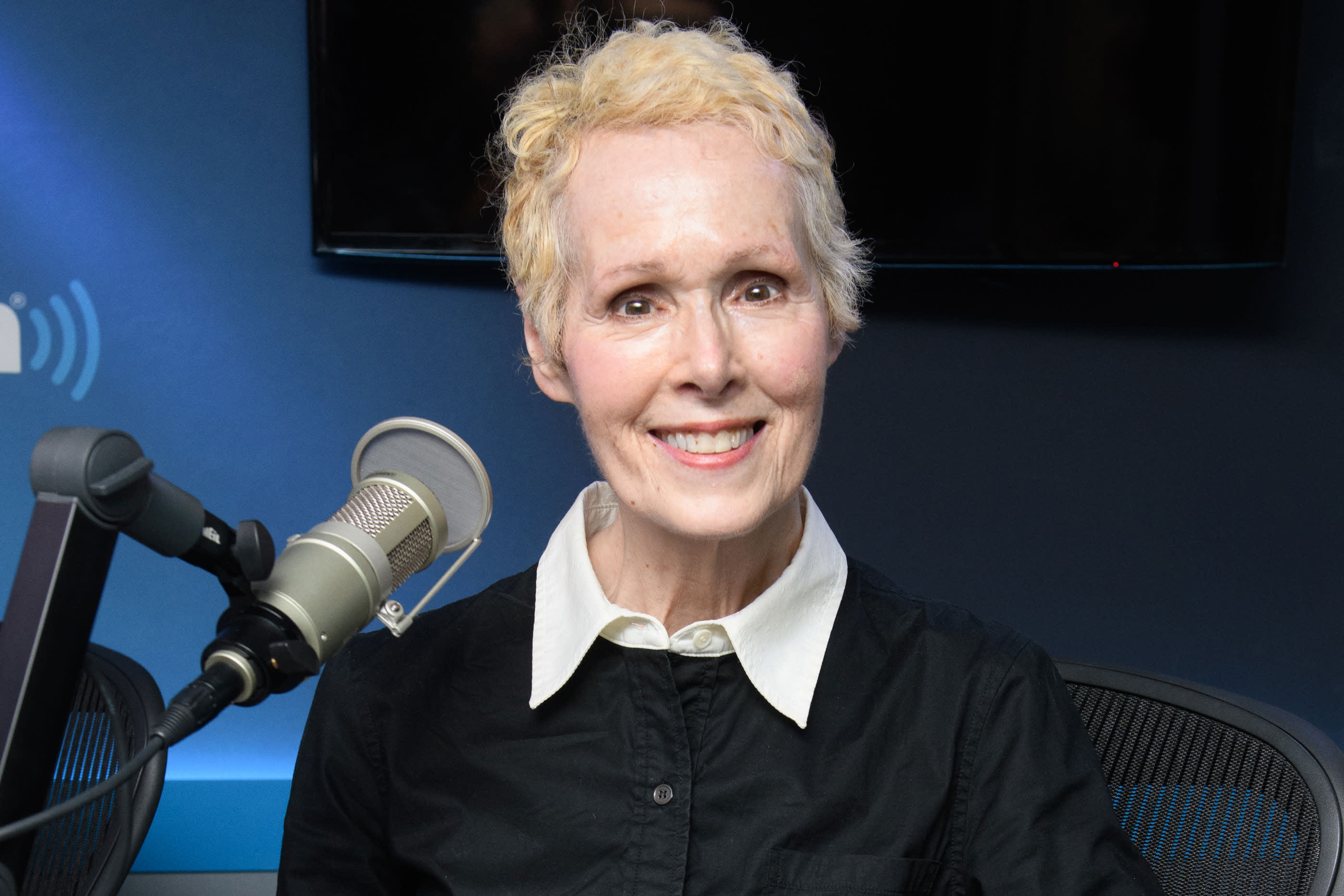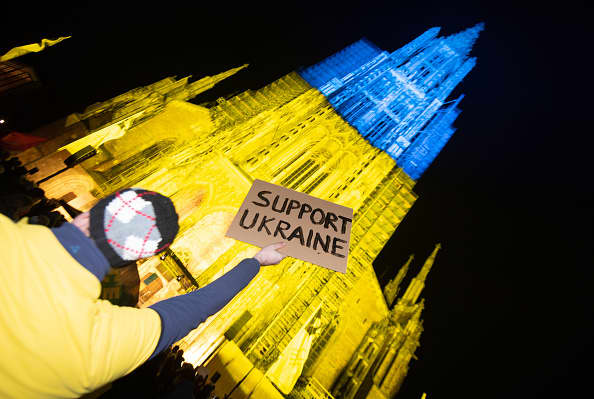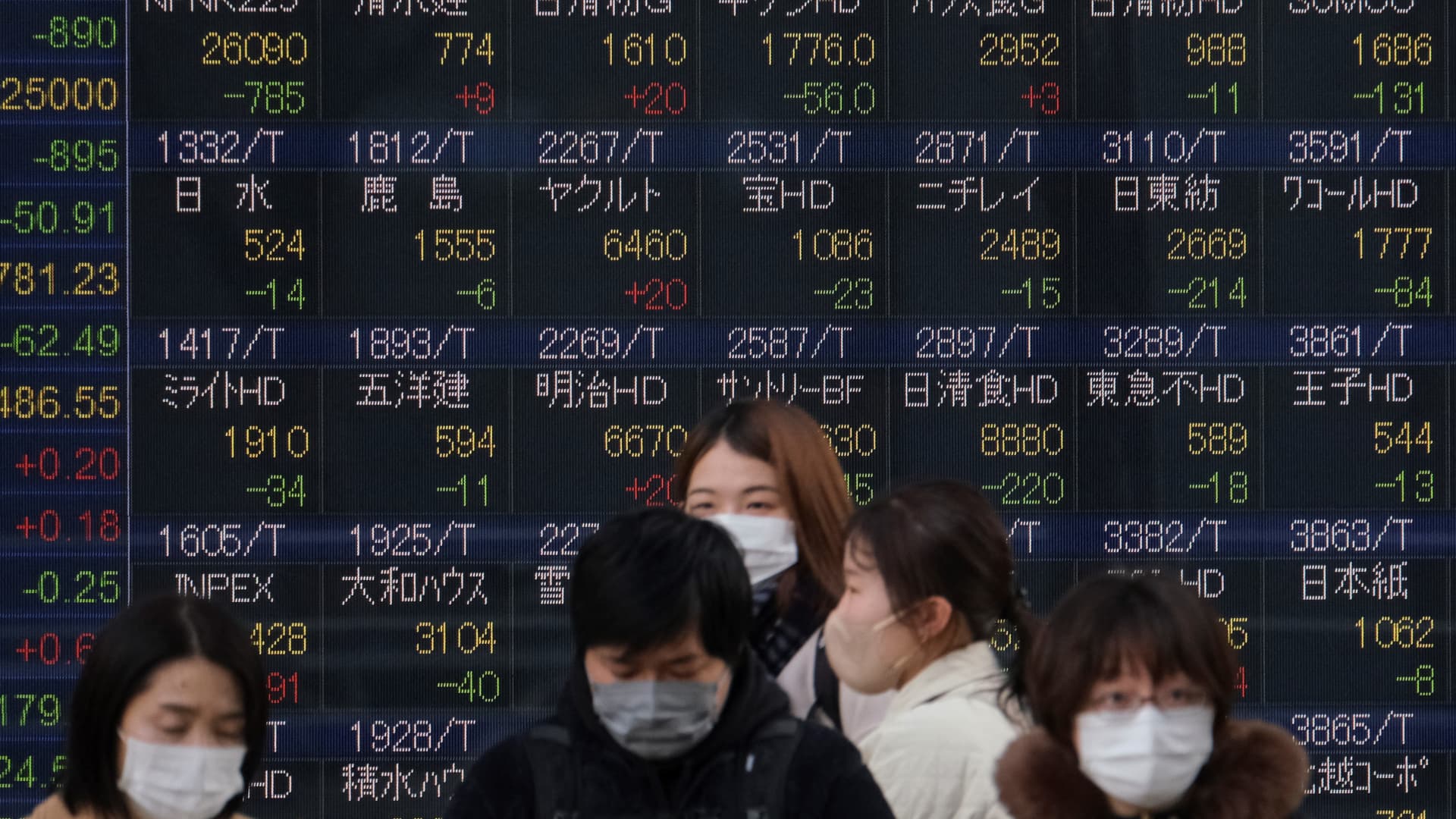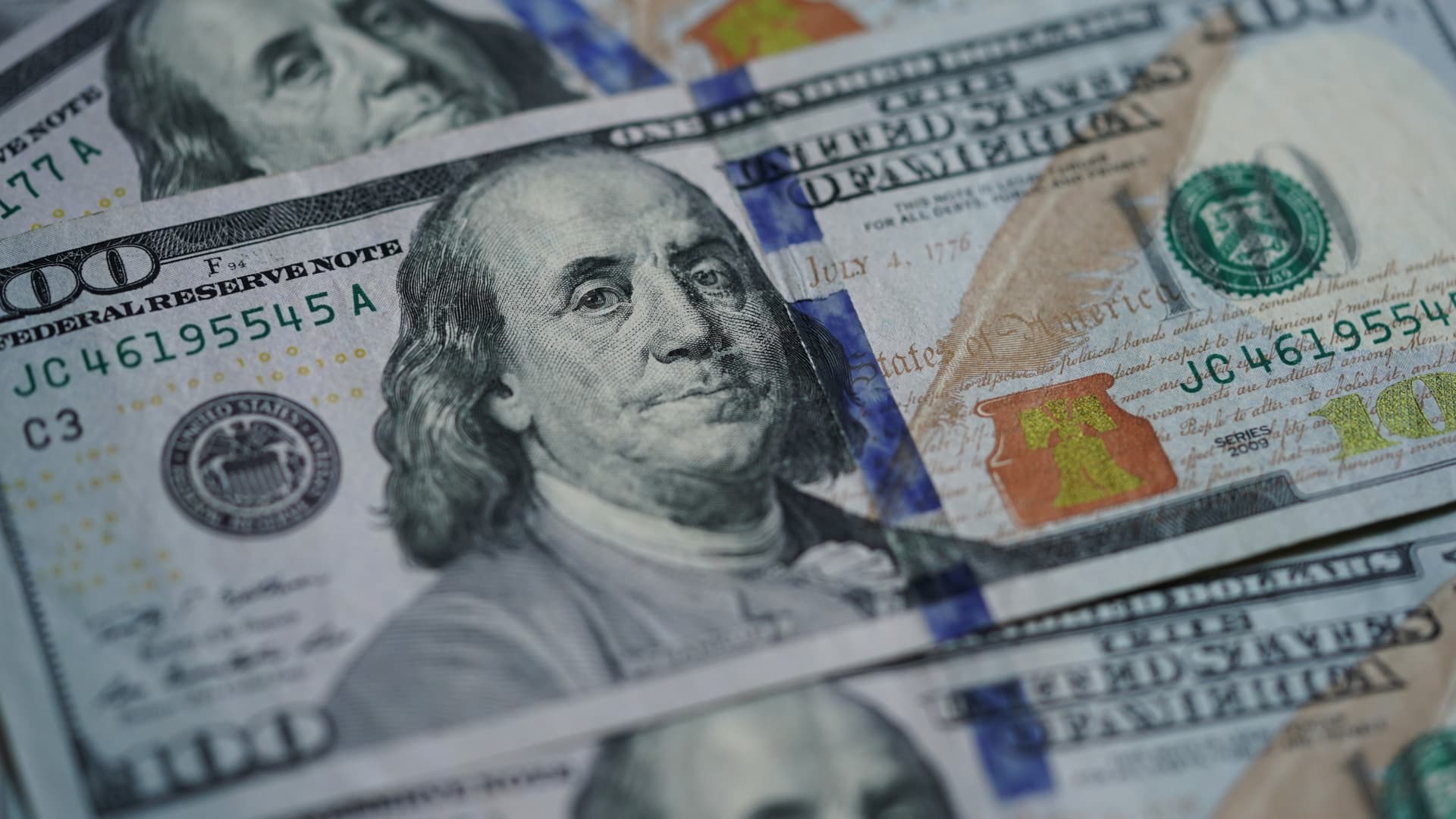CNBC Daily Open: Tech rebounds, CrowdStrike tumbles, Wiz rejects Google
S&P 500 clocks best day since early June. Republicans call on CrowdStrike CEO to testify. Wiz ends $23 billion Google deal.

Traders work on the floor of the New York Stock Exchange (NYSE) as a picture of Vice President Kamala Harris is displayed on a television screen on July 22, 2024 in New York City.
Spencer Platt | Getty Images
This report is from today's CNBC Daily Open, our international markets newsletter. CNBC Daily Open brings investors up to speed on everything they need to know, no matter where they are. Like what you see? You can subscribe here.
What you need to know today
Tech rebounds
The S&P 500 posted its biggest gain since June 5, recovering from its worst weekly slide since April, as tech stocks rebounded led by Nvidia. The Nasdaq Composite rose 1.58% to close above 18,000, while the Dow Jones Industrial Average advanced 127 points. Small-cap stocks also performed well, with the Russell 2000 rising 1.7%. The yield on the 10-year Treasury inched higher ahead of economic data later in the week. U.S. oil prices slipped.
CrowdStrike tumbles
Republican representatives have called on CrowdStrike CEO George Kurtz to testify before the House Committee on Homeland Security, following a faulty software update that crashed millions of Microsoft Windows devices. Rep. Mark Green and Rep. Andrew Garbarino said the incident was a "warning about the national security risks associated with network dependency," according to a letter issued on Monday. CrowdStrike shares slumped 13%. Reeling from the IT glitch, Delta Air Lines canceled 900 flights — 23% of its mainline operations — by Monday evening.
Wiz walks away
Cloud security startup Wiz rejected a $23 billion acquisition offer from Google, opting instead to pursue an IPO. The deal, which would have been Google's largest ever, was abandoned due to antitrust and investor concerns. Wiz, founded in 2020, offers a range of cloud security products that would have strengthened Google's position in the competitive cloud market.
NBA rights
Warner Bros. Discovery has exercised its right to match a $1.8 billion per year deal between the National Basketball Association and Amazon Prime Video for a package of games. The move allows Warner Bros. to retain some of its NBA broadcasting rights. However, the NBA may not want Warner Bros. as a media rights partner and could reject the company's matching rights, which could lead to a legal tussle.
Asia markets mixed
Asia-Pacific markets were mixed. The Taiwan Weighted Index snapped a four-day losing streak, rising 2.2%, with Taiwan Semiconductor Manufacturing Corp and Hon Hai Precision Industry — also known as Foxconn, rising 3.3% and 4% respectively. Japan's export-heavy Nikkei 225, South Korea's Kospi and Australia's S&P/ASX 200 all rose. However, Hong Kong's Hang Seng index slipped 0.1% and mainland China's CSI 300 dropped 1%. India's benchmark Nifty 50 was little changed ahead of the country's budget presentation.
[PRO] Reshoring
As the U.S. presidential election approaches, reshoring American manufacturing is a shared priority. Both parties are pushing for policies that support domestic manufacturing, attracting investor interest. Two stocks and an ETF are set to benefit no matter who wins, according to this fund manager.
The bottom line
Wall Street largely took Biden's decision to end his stalled reelection campaign in its stride. His endorsement of Harris prompted donors, including Disney heiress Abigail Disney, to support her candidature. Harris and the Democratic Party raised $100 million in online donations after Biden's exit.
Amid discussions about the potential resurgence of the "Trump trade" following an attempt on former President Donald Trump's life and the increasing likelihood of him securing a second term, seasoned investors advised retail investors to avoid making hasty changes to their portfolios.
"Do not make portfolio changes based on what you think the election is going to bring three and a half months before the election," Jim Lebenthal, chief equity strategist at Cerity Partners, told CNBC. "In the last month, we've had convictions, we've had the very unfortunate assassination attempt, we've had the presumptive nominee of the Democratic Party drop out. There will probably, highly likely, be more changes to come."
You can read more of CNBC's coverage here:
Here's what a Harris administration could mean for your wallet.As Harris seeks to win over doubters, analysts explain what to watchBiden dropping out adds more uncertainty to markets. What investors are sayingHow Biden's unpopular economic record could be a challenge for HarrisDespite political uncertainty, Strategas' Dan Clifton noted the S&P 500 has risen 6% in seven weeks, attributing this to higher liquidity.
"There are limits to how much the political events are going to have impacts on the broader equity market," he said on CNBC's "The Exchange." "So there's a cushion to digest some of this political uncertainty."
Earnings reports and central bank policies remain top priorities for Wall Street. The market is pricing in a more than 92% chance that the Federal Reserve will cut interest rates during its September meeting.
The Fed's preferred inflation gauge, core PCE price index, releases Friday, and will offer hints on the central bank's monetary policy rate cut path.
Before the economic data, automakers start rolling out their earnings. CNBC's Michael Wayland has more on what to expect and why GM is set to be the standout performer among traditional automakers. And CNBC's Lora Kolodny writes Tesla's earnings are due today and investors want a robotaxi update.
— CNBC's Samantha Subin, Hakyung Kim, Lisa Kailai Han, Ashley Capoot, Sarah Min, Alex Sherman, Kate Rogers, Yun Li, Rohan Goswami and Lee Ying Shan contributed to this report.

 Tekef
Tekef 































